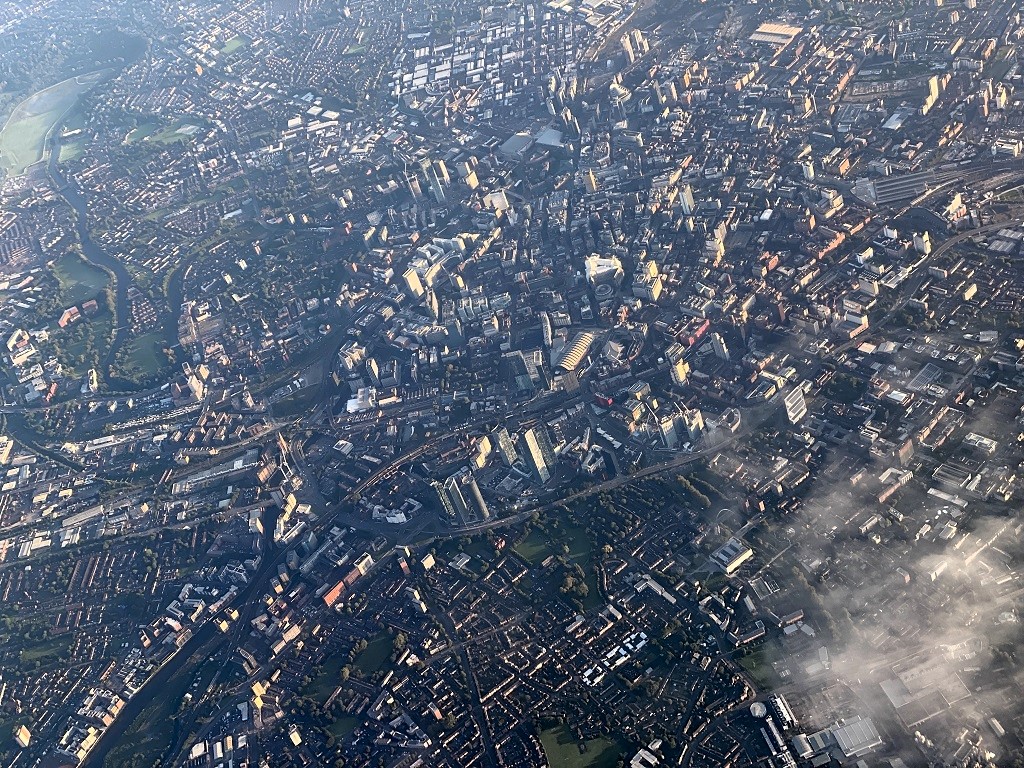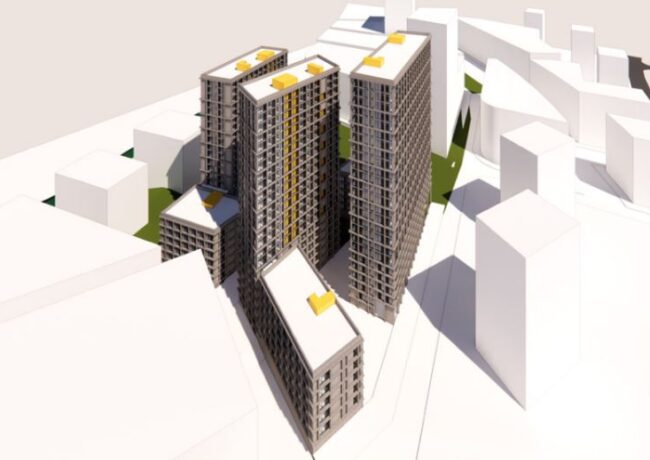Office-to-resi conversion for Basil House
A planning application has been submitted to convert Basil House, a grade two-listed office building in Manchester's Portland Street, into 37 apartments.
Paul Butler Associates is the agent on the scheme, representing Stephen Beech, the student landlord and residential developer behind the Beech Group of companies.
According to the plans, the 21,700 sq ft former textile mill would include 11 one-bedroom and 26 two-bedroom apartments, with internal cycle storage. The basement would be converted for use as a retail unit.
The property is currently largely vacant, with Ashoka Restaurant occupying the ground floor unit.
The planning statement to Manchester City Council said: "The provision of a variety of uses that will have a positive impact on the regeneration of this part of the City Centre. The mix of housing will meet an identified need for accommodation in Manchester City Centre and contribute to the creation of a sustainable community; and, the commercial use will add activity and vitality to Portland Street."
Previous office-to-residential conversion by Beech include 90 Princess Street in Manchester city centre, which provides 35 apartments aimed at young professionals and was one of the first multi-residential buildings in the North West to achieve a BREEAM Outstanding rating.





This is a textile warehouse rather than a mill, surely? They are very different types of building.
By Trouble at t'Mill
Afraid not Trouble at t’mill, still called a textile mill, mill just refers to the processing element, as opposed to a warehouse which is essentially storage.
By Property Man
Are you sure Property Man? I doubt any cotton processing was done in this building. In the cottonopolis era, much of central Manchester was given over to commercial warehousing uses where the finished product was stored, displayed, marketed, packaged and sold hence the large windows and ornate facades unlike mills, where the yarn was turned into cloth, which have a more functional factory-like appearance and are found in more out lying districts. This is therefore a commercial rather than industrial building; a warehouse rather than a mill.
By Trouble at t'Mill